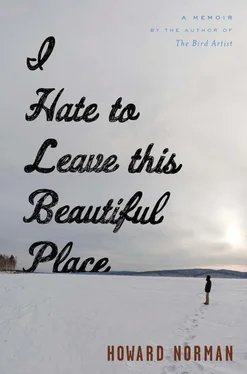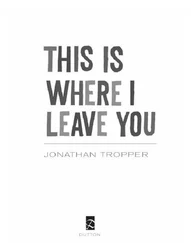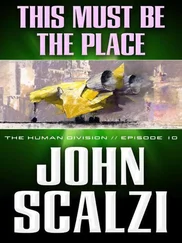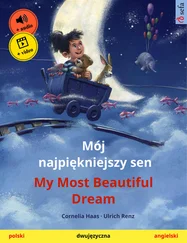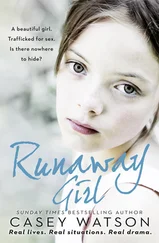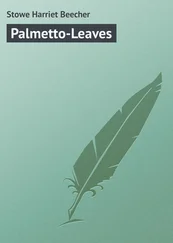By April I had decided to take classes at McGill in September, and I told Isador, who said, “Let’s celebrate the fact that you’ve made any sort of decision.” That seemed fair. So the next day, a Sunday, we had dinner at the hotel. Afterward we went to his room to have coffee and listen to his favorite radio shows, originally broadcast during World War Two. Many of these shows — gumshoe dramas, westerns, and domestic comedies — still included requests for listeners to buy war bonds, which lent them an air of historical authenticity. The thing was, each time we’d listen to these programs Isador would become despondent. But this particular Sunday his despondency seemed, I don’t know, precarious. He seemed drawn darkly down into it. He even started to mumble. I knew that the same old merciless interior harangue had started: How could I have done it? How could I have acted in that movie? How could I have done it? Isador appeared to drift away, and I said, “Izzy, maybe you shouldn’t listen to these programs anymore.”
He snapped, “What the goddamn hell kind of nonsense is that?”
“Well, you become so morbid.”
“I’m not having a nervous collapse in front of you, if that’s what you’re worried about.”
“You might have one in private.”
“These radio shows bring up all sorts of regrets. That’s all.”
“That’s what I mean.”
“I cling to my regrets, once I discover which ones won’t go away. I rely on them for unhappiness. It keeps me connected to the past. You’re so thick in the skull, you haven’t learned anything.”
“You like getting so down and out? I don’t understand.”
“I heard a rumor once that some people don’t have any regrets. Now, what kind of person would that be? Do you want to be friends with someone like that? Would you trust someone like that?”
Isador was debating at a depth of philosophical paradox I could not compete with. It had a comical aspect, just the way he said what he’d said, characteristically Isador’s way of putting things. I loved him, so I loved his comic-tragic way of inverting logic in order to define himself by his worst moments. I knew that when this whole thing about The Cross of Lorraine got most deeply to him, he’d put his scratchy records of Bach’s suites for unaccompanied cello and Chopin’s nocturnes on the turntable, to accompany and intensify his mood, a duet between sad and sad; and having found a successful way to comport himself at such moments, he stuck with it. Not a few times, when I heard one of these records through his door, I turned around in the hallway and walked back to the electric lift.
Now turning down the radio volume, he said, “Look at my life. What have I got? My wife’s been gone for years now. My children live far away. You’re about to abandon me for university. Which is fine. Which is good. A very good thing. Let’s just leave it at that, all right? It’s hard for you to understand because you didn’t live through the war. People who lived through it, they’d understand my unconditional unforgiveness toward myself for taking that part. And Laszlo meant well, I know that. But it’s been a curse.”
“Isador, there’ve been hundreds of movies with Nazis in them. Besides, you told me yourself, The Cross of Lorraine was a flop. Hardly anyone saw it.”
This seemed only to more firmly establish his point of view. “I see it every night — in here, ” he said, putting his finger to the side of his head as if pointing a revolver. “I am not a good man.”
“You’re a very good man.”
“On that subject we differ in our opinions.”
We listened to three more hours of radio shows. The Aldrich Family, Dick Tracy, The Timid Soul, Sherlock Holmes, and Mr. Keen, Tracer of Lost Persons. Isador’s absolute favorite was You Can’t Do Business with Hitler, featuring John Flynn and Virginia Moore, produced by the radio section of the Office of War Information.
In June, sponsored by five separate newspaper commissions (none knew about the others) to write about birds in Saskatchewan, I sat at the kitchen table and mapped out my summer. The cumulative payments would just about cover expenses. I was surrounded by boxes of clothing and books I’d packed up for storage. I’d hung Black-tailed Gannet and Laughing Gull on a wall in Isador’s hallway. I was letting go of the apartment; it was now rented out to a seamstress.
Traveling light (clothes, notebooks, pens, a copy of The Carrier of Ladders by W. S. Merwin, a field guide to Canadian birds, field glasses, plus that postcard of the couple eloping), on June 5 I flew from Halifax to Regina. From Regina I boarded a small plane to Kyle, just north of Saskatchewan Landing Provincial Park, a few miles from where Mathilde’s plane went down. With no professional therapeutic guidelines, but fiercely cajoled by Isador, I knew that if I was going to “move ahead with life” (Isador’s words) — detach from séances, detach from the delusion that in time Mathilde would have considered me the love of her life — then I’d best start with an actual location on the map, so I chose the site of Mathilde’s death.
It was to be far less a pilgrimage than a chance to begin some sort of new journey. Mathilde had gone to her Maker; I needed to look at her photograph to recall her face, since even dreams seldom provided that now. I had a photograph of her at what I considered her most ebullient, bright self, laughing, seated at a wedding banquet, and when I looked at it in the plane, I smiled at her comment about her pronouncedly angular nose: “I cut a swath through the day.” Also, I remembered really liking the dress she had on that evening. The earrings, too. How she was inebriated, giddy, whispering to the woman who sat next to her. And how she’d danced every dance with someone, including me in my rented tuxedo. I’d turned twenty-one in March. Her twenty-seventh birthday would have been June 7.
To get to the site of the wreckage was simple. At the landing strip in Kyle there was a car and a pickup truck for rent by the day or the week. I chose the truck and put twenty dollars in the hands of the attendant. That was commerce in those days. On a road southeast out of Kyle, I found the six-cottage motel where Mathilde had been staying and asked the owner, “Can you please direct me to where the plane crashed last year?” He drew a rough map on a napkin. No questions asked except, “Will you be needing a room?” It took me less than fifteen minutes to get to the spot he’d marked with an X.
It was a beautiful day. There were some birds, but I didn’t bother to identify which kinds, since I just wanted to take in the sweep of the landscape. Open fields along a creek, with cattails waving and slightly bent in the wind. As I started to walk, with no destination in mind, I suddenly saw that someone had put up a wooden cross, decorated with plastic flowers, near a small marsh. This had to be in memory of the pilot, or Mathilde, or perhaps both. There were no words on the cross, but it was built solidly and seemed to be planted deep in the ground.
It occurred to me that I should find out who had done this, but then I thought that would make for detective work the result of which would have little meaning. I wasn’t there to write about Mathilde’s fate, I was there to write about birds, and that was that. The wreckage had been mostly cleared, but not completely. I noticed a charred seat with its springs exposed, sections of a wing, blackened pieces of glass, and what looked like photographic film cases lying about. There also was part of the fuselage with decaled numbers on it, but I didn’t care to touch any of this. I just needed a place to begin.
I ended up staying at the small motel that night. It was only me and the proprietor and his wife; we had hamburgers together in their cottage. Nice people, all seasoned hospitality and grateful for the patronage (twelve dollars for the room), but they thought I wanted to talk about the plane crash, and I may have been snappish and blunt in saying that I didn’t. Later, we watched a half-hour sitcom on TV. Having slept fitfully with the bedside lamp on, I left at five A.M. to drive back to Kyle.
Читать дальше
